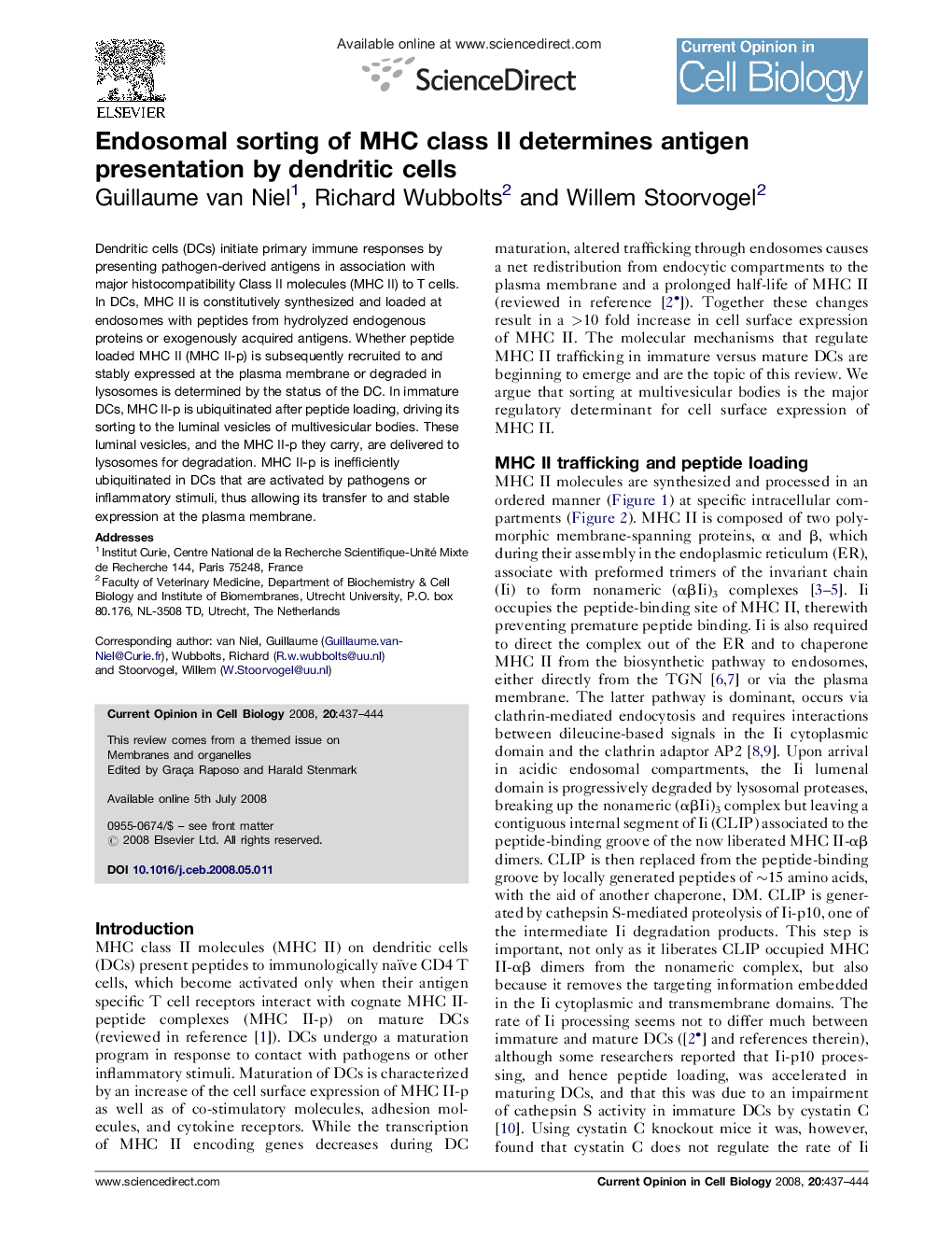| Article ID | Journal | Published Year | Pages | File Type |
|---|---|---|---|---|
| 10929387 | Current Opinion in Cell Biology | 2008 | 8 Pages |
Abstract
Dendritic cells (DCs) initiate primary immune responses by presenting pathogen-derived antigens in association with major histocompatibility Class II molecules (MHC II) to T cells. In DCs, MHC II is constitutively synthesized and loaded at endosomes with peptides from hydrolyzed endogenous proteins or exogenously acquired antigens. Whether peptide loaded MHC II (MHC II-p) is subsequently recruited to and stably expressed at the plasma membrane or degraded in lysosomes is determined by the status of the DC. In immature DCs, MHC II-p is ubiquitinated after peptide loading, driving its sorting to the luminal vesicles of multivesicular bodies. These luminal vesicles, and the MHC II-p they carry, are delivered to lysosomes for degradation. MHC II-p is inefficiently ubiquitinated in DCs that are activated by pathogens or inflammatory stimuli, thus allowing its transfer to and stable expression at the plasma membrane.
Related Topics
Life Sciences
Biochemistry, Genetics and Molecular Biology
Cell Biology
Authors
Guillaume van Niel, Richard Wubbolts, Willem Stoorvogel,
